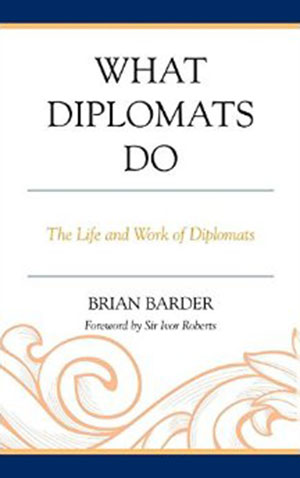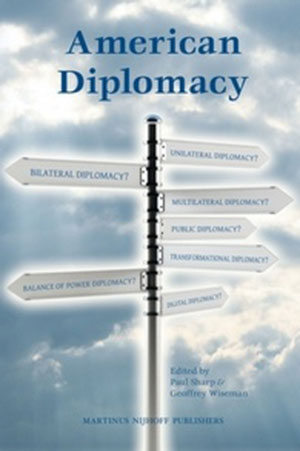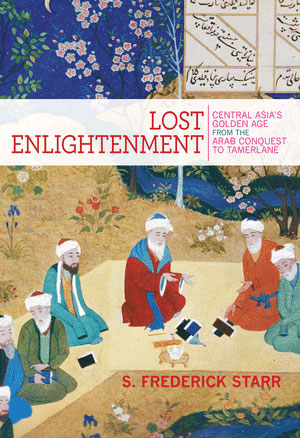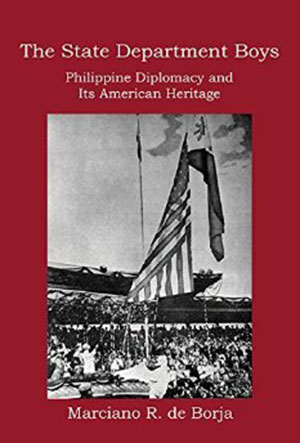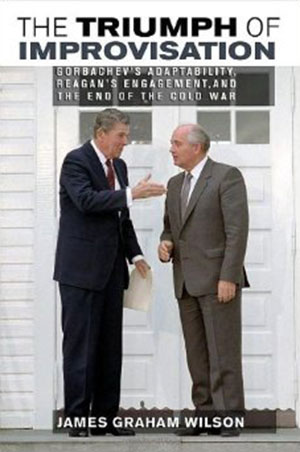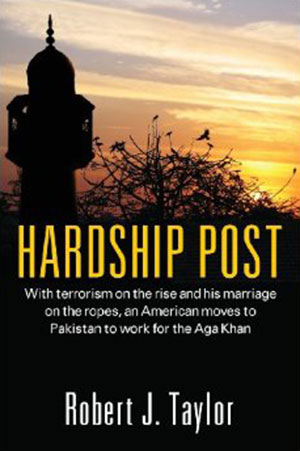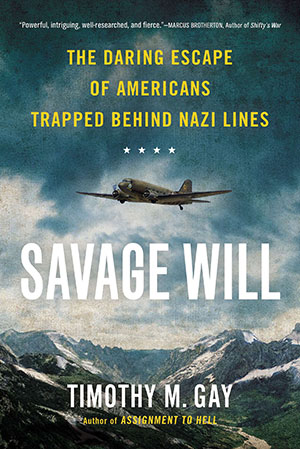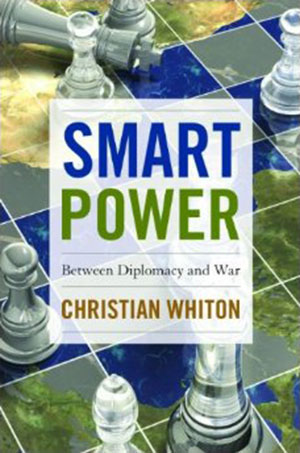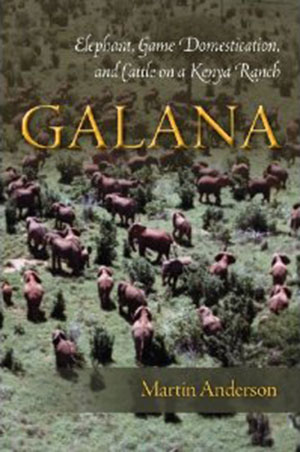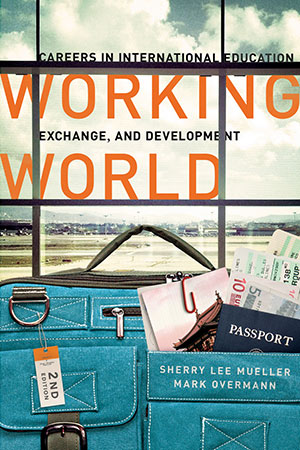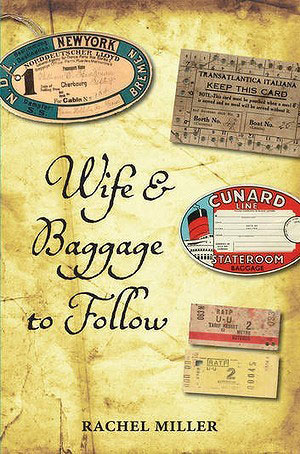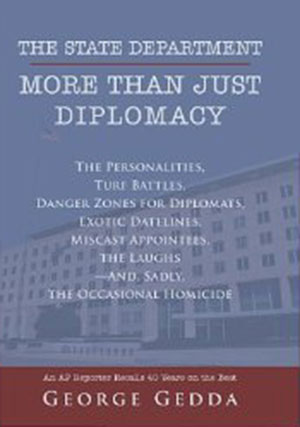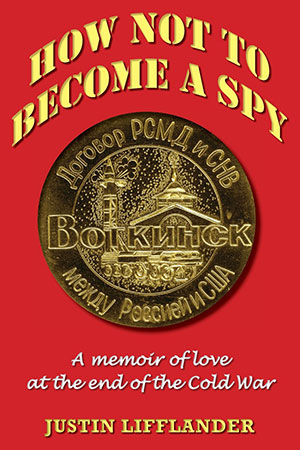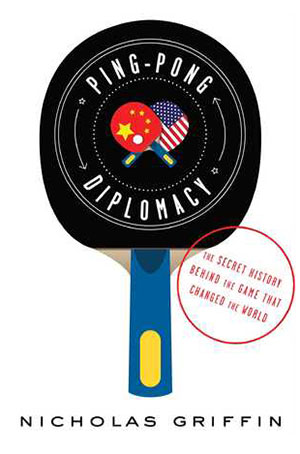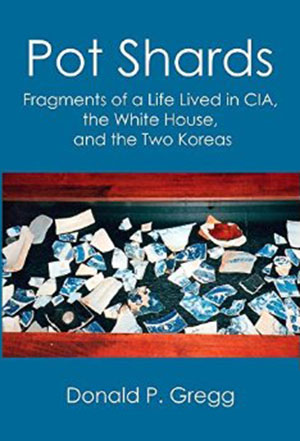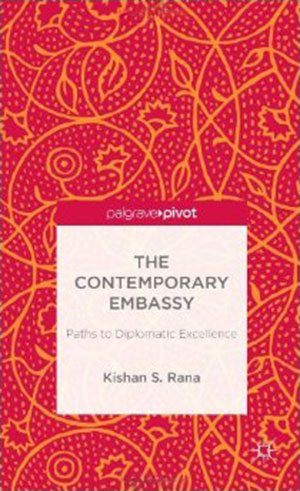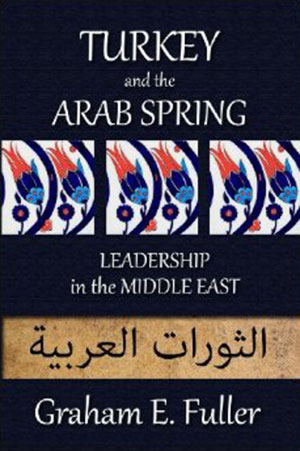Of Related Interest - 2014
What Diplomats Do: The Life and Work of Diplomats
Brian Barder, Rowman & Littlefield, 2014, $44, hardcover, 216 pages.
What Diplomats Do follows a fictional British diplomat from his application to join the Foreign Office through different postings at home and overseas, culminating with his appointment as ambassador and retirement. Each chapter contains case studies, based on the author’s 30-year diplomatic experience, such as the role of the diplomat during emergency crises and as part of a national delegation to a permanent conference such as the United Nations.
“Barder’s account is informative, humanly sympathetic, distinctly British and thoroughly engaging,” says Alan K. Henrikson of The Fletcher School of Law and Diplomacy at Tufts University.
Sir Brian Barder is an honorary visiting fellow at the University of Leicester Department of Politics and International Relations. During a distinguished career in the British Diplomatic Service he served as ambassador to Ethiopia, the Republic of Benin and Poland, and as high commissioner to Nigeria and Australia.
American Diplomacy
Paul Sharp and Geoffrey Wiseman, eds., Martinus Nijhoff Publishers, 2012, $62.93, paperback, 233 pages.
As the essays highlight, American diplomacy is in the midst of a period of uncertainty because the country’s international position is changing and the character of international relations may be undergoing a transformation.
Paul Sharp is professor and head of political science at the University of Minnesota Duluth and co-edits The Hague Journal of Diplomacy. Geoffrey Wiseman is professor of the practice of international relations at the University of Southern California. A former Australian diplomat, he also worked as a program officer at the Ford Foundation.
Lost Enlightenment: Central Asia’s Golden Age from the Arab Conquest to Tamerlane
S. Frederick Starr, Princeton University Press, 2013, $39.50/hardcover, $23.17/Kindle, 680 pages.
In this sweeping and richly illustrated history, S. Frederick Starr tells the fascinating but largely unknown story of Central Asia’s medieval enlightenment, exploring its rise and the competing theories about the cause of its eventual demise.
Lost Enlightenment recounts how, between 800 and 1200, Central Asia led the world in trade and economic development, the size and sophistication of its cities, the refinement of its arts and, above all, in the advancement of knowledge in many fields. Central Asians gave algebra its name, calculated the earth’s diameter with unprecedented precision, wrote the books that later defined European medicine and penned some of the world’s greatest poetry.
S. Frederick Starr is the founding chairman of the Central Asia-Caucasus Institute and Silk Road Studies Program, a joint trans-Atlantic research center affiliated with the Paul H. Nitze School of Advanced International Studies at the Johns Hopkins University in Washington and the Institute for Security and Development Policy in Stockholm. He is an adjunct professor of European and Eurasian studies at Johns Hopkins’ School of Advanced International Studies.
Informal Ambassadors: American Women, Transatlantic Marriages, and Anglo-American Relations
Dana Cooper, The Kent State University Press, 2014, $49.56/hardcover, $43.99/Kindle, 195 pages.
From 1865 to 1945, a number of American heiresses wed members of the British aristocracy and, without the formal title of diplomat or member of Parliament, came to exert significant influence in the male-dominated arena of foreign affairs and international politics.
In Informal Ambassadors, author Dana Cooper traces the experiences of five of these women: Lady Jennie Jerome Churchill, Mary Endicott Chamberlain, Vicereine Mary Leiter Curzon, Duchess Consuelo Vanderbilt Balsan and Lady Nancy Astor. As the wives of leading members of the British aristocracy, they had uncompromised and unlimited access to the eyes and ears of individuals at the highest level in Great Britain and worked to improve relations at the turn of the 20th century.
Dana Cooper is associate professor of history at Austin State University. She is a co-editor of Transatlantic Relations and Modern Diplomacy: An Interdisciplinary Examination (Routledge, 2013).
The State Department Boys: Philippine Diplomacy and Its American Heritage
Marciano R. de Borja, New Academia/Vellum, 2014, $38/hardcover, $26/paperback, 388 pages.
In July 1946, following Philippine independence, the U.S. Department of State and selected U.S. Foreign Service posts trained the first officer corps of the Philippine Foreign Service, fondly known as the “State Department Boys.” These pioneer Filipino diplomats eventually became the pillars of Philippine diplomacy and helped the fledgling republic find its place in the community of nations.
An ADST-DACOR Diplomats and Diplomacy book, The State Department Boys is the first in-depth study of this interesting chapter of diplomatic history.
Author Marciano R. de Borja, a career diplomat with the rank of Chief of Mission II in the Philippine Foreign Service, is the author of FSO IV: Starting a Career in the Philippine Foreign Service (1999) and Basques in the Philippines (2005).
The Triumph of Improvisation: Gorbachev's Adaptability, Reagan's Engagement, and the End of the Cold War
James Graham Wilson, Cornell University Press, 2014, $24.95, hardcover, 204 pages.
The Triumph of Improvisation takes a reflective look at the end of the Cold War, from the Soviet invasion of Afghanistan in December 1979 to Operation Desert Storm in January 1991. Drawing on deep archival research and declassified papers, the author argues that it was adaption, improvisation and engagement by individuals in positions of power—not a coherent grand strategy—that ended the specter of a nuclear holocaust.
James Graham Wilson is a historian at the Department of State. He currently works on Soviet and National Security Policy volumes for the Foreign Relations of the United States series in the Office of the Historian.
Hardship Post
Robert J. Taylor, Outskirts Press, 2013, $16.61/paperback, $6.99/Kindle, 299 pages.
In this memoir, Robert Taylor recounts the life-changing adventure he had while working for three years in Karachi, Pakistan. The Aga Khan, the wealthy and influential imam of the Ismaili Muslims, hired him to help build the world-class Aga Khan University Hospital. Taylor covers both the excitement and the challenges of serving overseas in a foreign culture, and in the process draws a rich portrait of Pakistan and its people.
Robert Taylor has been an adviser to the World Bank, USAID, WHO and other international agencies in 30 developing countries. His memoir won first place in the 2012 Royal Palm Literary Awards Competition for unpublished memoirs. Originally from Minnesota, he now lives in Punta Gorda, Fla.
Savage Will: The Daring Escape of Americans Trapped Behind Nazi Lines
Timothy M. Gay, New American Library, 2013, $16/paperback, $7.99/Kindle, 352 pages.
In the midst of World War II, men and women of the 807th Medical Air Evacuation Squadron found themselves crash-landing behind enemy lines. Hopelessly stranded hundreds of miles from Allied lines, in a German-occupied Albania already riveted by war, the survivors trudged through snowy mountains for two months desperately trying to stay alive. With the aid of extensive research, Timothy Gay tells one of the most thrilling untold stories of World War II. It is a story of heroism, courage and unfailing determination.
Timothy Gay, a historian and writer, is the award-winning author of Satch, Dizzy & Rapid Robert: The Wild Saga of Interracial Baseball before Jackie Robinson (Simon & Schuster, 2011). His essays and op-ed pieces on American history, politics, public policy and sports have appeared in the Washington Post, Boston Globe and USA Today. He resides in Virginia.
Smart Power: Between Diplomacy and War
Christian Whiton, Potomac Books Inc., 2013, $22.19/hardcover, $16.49/Kindle, 225 pages.
Here is a scholarly look at the role of “smart power” in American foreign policy, with a foreword by Paula Dobriansky, undersecretary of State for democracy and global affairs and U.S. envoy to Northern Ireland under the George W. Bush administration.
Not simply a checklist of policy options or a simple mix of foreign aid and military force, smart power refers more to a way of thinking. Moreover, it is not really new. Whiton marshals successful historical examples and argues that such practices need to be updated to meet current challenges.
Christian Whiton is a principal at DC International Advisory, a political risk consulting firm. A presidential campaign adviser and commentator on national security issues, he was a senior advisor and deputy special envoy in the State Department from 2003 to 2009. He resides in Los Angeles.
Galana: Elephant, Game Domestication, and Cattle on a Kenya Ranch
Martin Anderson, Stanford University Press, 2013, $15.80, hardcover, 106 pages.
Galana recounts the story of the creation, achievements and demise of the largest cattle ranch in Kenya. Founded in 1968 on 2,500 square miles of arid land, the Galana Ranch successfully introduced cattle into the region. But 20 years later an epidemic of poaching forced the ranch to shut down. This engrossing personal story also throws light on Kenya’s wildlife management politics.
Martin Anderson is a distinguished overseer at the Hoover Institution of Stanford University. Throughout his life he has been a trial lawyer in Hawaii and San Francisco, an active reservist in the U.S. Marine Corps with two tours in World War II and the Inchon/Chosin campaign in Korea, a ski resort developer in Lake Tahoe, as well as a rancher in Kenya. He lives in Palo Alto, California, and continues to visit Kenya frequently.
Working World: Careers in International Education, Exchange and Development
Sherry Lee Mueller, Mark Overmann, Georgetown University Press, 2014, $18.34/paperback, $14.55/Kindle, 322 pages.
Working World: Careers in International Education, Exchange, and Development is a useful resource for international affairs students and job seekers alike. “It is designed to streamline and clarify the initial stages of career research and help you put your job search in a broader perspective,” state the authors.
The book is divided into two informative sections. The first describes concepts to keep in mind as you develop your career philosophy and goals, and the second offers selected resources to help you in your job search.
Sherry Lee Mueller is an adjunct professor at American University’s School of International Service and president emeritus of the National Council for International Visitors (now Global Ties U.S.). Mark Overmann is assistant director and a senior policy specialist at the Alliance for International Education and Cultural Exchange.
Wife and Baggage to Follow
Rachel Miller, Halstead Press, 2013, $29.99, paperback, 238 pages.
Wife and Baggage to Follow is a record of the life and times of some of the women who followed their husbands from post to post in the Australian diplomatic service from 1924 to the recent period. Based on oral histories, interviews and supplementary research and documentation, the book traces the changing conditions of service that affected diplomatic spouses and their families, and also looks at the struggle of early female officers in diplomatic and administrative careers.
This is a lively account, with fascinating personal stories interwoven with the development of the Australian Department of Foreign Affairs and Trade.
Rachel Miller accompanied her husband on seven postings over four decades, to Asia, the United Nations and New Zealand. She holds a degree in Asian studies from the Australian National University and is a former president of the Foreign Affairs Wives Association.
The State Department: More Than Just Diplomacy
George Gedda, AuthorHouse, 2014, $16.95/paperback, $3.99/Kindle, 166 pages.
Longtime readers of The Foreign Service Journal will instantly recognize the byline of George Gedda, who for 39 years covered the State Department for the Associated Press and frequently contributed articles to these pages. He is also the author of Cuba: The Audacious Revolution (CreateSpace, 2011).
This memoir draws on that impressive body of work to reveal (in the author’s own words) “the good, bad and ugly” about State, but always does so with the respect for the work of professional diplomats that has characterized his entire career.
As FSJ Contributing Editor Steven Alan Honley observed in his review of the book (July-August FSJ): “If anyone can engage a ‘lay’ audience that is at least theoretically interested in a book about the State Department, while offering some deeper insights for those who already know the subject, it is George Gedda.”
How Not to Become a Spy: A Memoir of Love at the End of the Cold War
Justin Lifflander, Gilbo Shed Books, 2014, $14, paperback, 267 pages.
In this comic memoir set at the end of the Cold War, Justin Lifflander proceeds from internships at the FBI and State Department to Moscow, and on to provincial Votkinsk, the birthplace of Tchaikovsky and the finest ICBMs ever made. There he falls in love with his KGB-assigned escort, confounds Soviet authorities with pink lawn flamingos, hot tubs and pet goats, and learns that Russians and Americans are more alike than they realize.
In his foreword, the author cites the need to address the current “crisis of misunderstanding” between the United States and Russia, and urges us to challenge everything we think we know in that effort. He hopes that his story might help.
Justin Lifflander holds dual U.S. and Russian citizenship and resides in Moscow with his wife, son and mother-in-law. After Votkinsk, he worked for Hewlett-Packard Russia in Moscow for 20 years and served as business editor for the Moscow Times from 2010 to 2014.
Ping-Pong Diplomacy: The Secret History of the Game that Changed the World
Nicholas Griffin, Simon & Schuster, 2014, $26/hardcover, $11.89/Kindle, 352 pages.
The spring of 1971 heralded the greatest geopolitical realignment in a generation. After 22 years of antagonism, Beijing and Washington suddenly moved toward a détente—achieved not by politicians, but by ping-pong players. The Western press delighted in the absurdity of the moment and branded it “Ping-Pong Diplomacy.” But for the Chinese, the game was always political, a strategic cog in Mao Zedong’s foreign policy. In Ping-Pong Diplomacy, Nicholas Griffin traces this crucial intersection of sports and society.
Griffin, a seasoned journalist and novelist, tells the strange and tragic story of how the game was manipulated at the highest levels. Through a cast of eccentric characters, from spies to hippies and from generals obsessed with ping-pong to atom-bomb survivors, Griffin explores how a neglected sport was used to help realign the balance of worldwide diplomacy.
The result is a page-turner that will interest not just China hands, but general readers, as well.
Pot Shards: Fragments of a Life Lived in CIA, the White House, and the Two Koreas
Donald P. Gregg, New Academia/Vellum, 2014, $26, paperback, 344 pages.
Donald P. Gregg spent 31 years as an operations officer in the CIA and 10 years in the White House under Jimmy Carter, Ronald Reagan and George H.W. Bush. Pot Shards is a window into the Cold War era and the agency’s failings and successes, including Gregg’s role in saving the life of Kim Dae Jung, a Korean political dissident who later, as South Korea’s president, won the Nobel Peace Prize.
As he recounts here, the author returned to Seoul in 1989 to serve as U.S. ambassador for four years. And in retirement, he has made six trips to Pyongyang (most recently in April), stressing dialogue over demonization.
Gregg colorfully describes his CIA tours in Japan, Burma, Vietnam and South Korea. His experiences in Vietnam illustrate the difficulties of speaking truth to power, including sharp-edged encounters with Robert McNamara and Curtis LeMay, among others. This is an ADST-DACOR Diplomats and Diplomacy Book.
The Contemporary Embassy: Paths to Diplomatic Excellence
Kishan S. Rana, Palgrave Pivot, 2013, $70/hardcover, $36/Kindle, 166 pages.
Today’s embassy blends tradition and change, accommodating multiple state and non-state actors who jostle on the international stage. In this innovative study, a distinguished former Indian ambassador, Kishan S. Rana, considers why diplomatic missions remain relevant today, and examines new representational options and global diplomacy techniques in an information age.
Supported by empirical research and interviews with diplomats and other professionals, and conveying unique insights into the experiences of developing countries, The Contemporary Embassy will be a valuable resource for diplomacy scholars and practitioners alike.
Kishan S. Rana was a member of the Indian Foreign Service from 1960 to 1995, serving as ambassador to Algeria, Czechoslovakia, Kenya, Mauritius and Germany. Ambassador Rana now teaches, writes and advises other governments on diplomatic practice. He is the author of 21st-Century Diplomacy: A Practitioner’s Guide (Bloomsbury Academic, 2011).
Turkey and the Arab Spring: Leadership in the Middle East
Graham E. Fuller, Bozorg Press, 2014, $15.95/paperback, $5.95/Kindle, 404 pages.
Graham E. Fuller breaks with conventional, Washington-centered analysis to explore the subject he lays out in his latest book’s title: Now that the politics of the Middle East are up for grabs, what are the sources of its future leadership? A former CIA analyst who has taught and written extensively about the region, Fuller says there are grounds for optimism. Iran may at last be re-emerging onto the world scene as a legitimate and influential actor; and, above all, Turkey’s experience, despite messy partisan politics, still offers the only convincing Muslim model of dynamic and effective governance.
Throughout this masterful analysis, Fuller elucidates the deeper political and human forces that reflect the Middle East’s own history and culture—as he has done in nearly a dozen previous books. (See the March 2013 FSJ for Steve Buck’s review of Fuller’s memoir, Three Truths and a Lie.)

